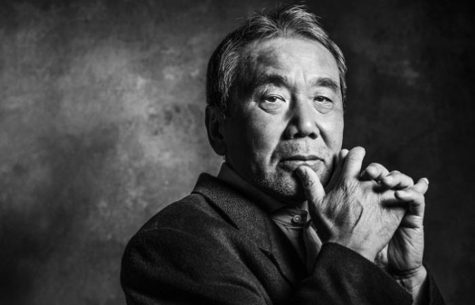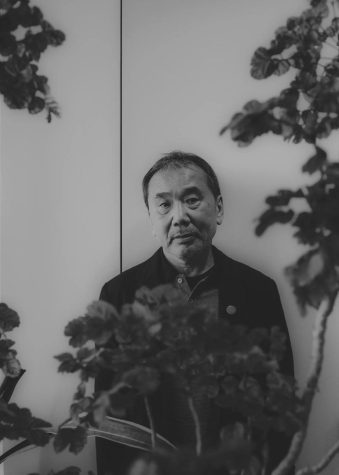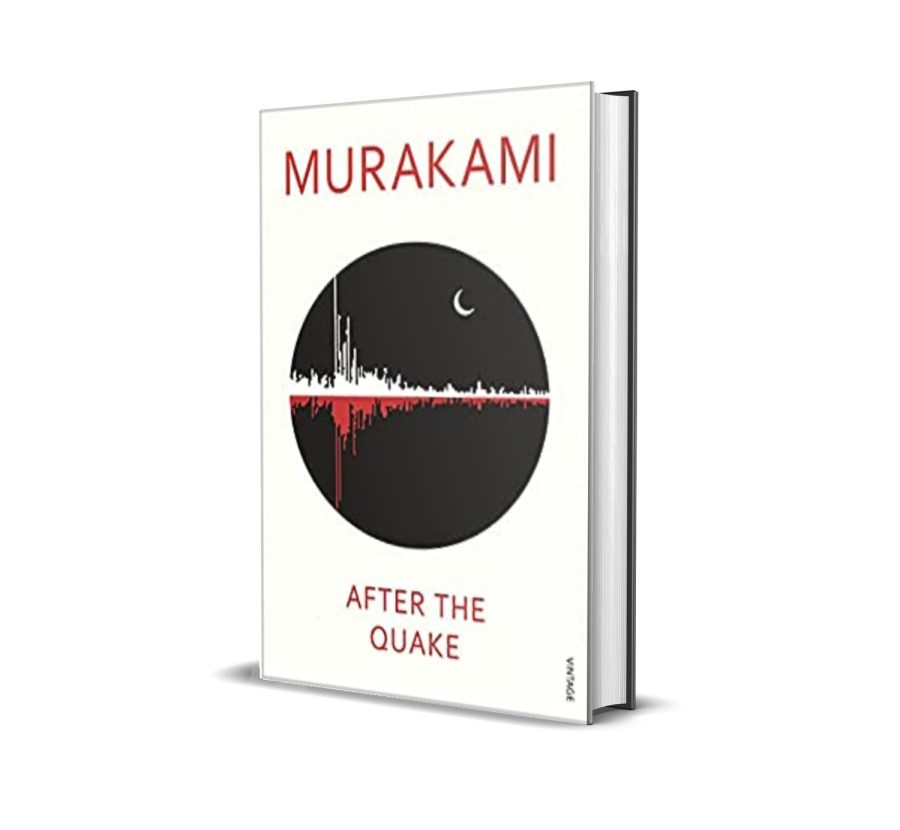Haruki Murakami and the Hunt for Nothing: An Exploration of Assorted Short Stories from After the Quake
“Yes, he thought: in those days, I used to talk to myself as if reciting poetry.”
-Haruki Murakami, Blind Willow, Sleeping Woman
What is a life? Is it a melange of discrete events, of declarative memories, adobe dwellers crossing paths in chain-linked hippocampi? Is the individual defined by the visage she self-curates, or by unsung psalms bequeathed, folded in her character and borne as indelible stowaways? Are we who we were, who we are, or who we dream to be? Haruki Murakami razes narrative and identity, time and place with unapologetic disregard for the trite passions of popular media. His writing bathes freely in an ageless pool of fact and unreality; plot thins and twirls in phantasmic waltz—while characters sit center-stage. In his realm of timeless instants, of fleeting sparks, of passing glances, of life and death, of joy and agony, of camaraderie and solitude, Murakami writes of humanity. Infinitely palpable, he sews the ephemeral ecstasy of youth and the abiding aches of age into stirring tales of existence—mundane and fantastical, predictable and psychedelic. He allows characters to view themselves, to bellow in the gaps of his prose, to reckon with eternal battles of self. As readers, we’re invited to do the same. Murakami’s true artistry lies not in the action, but the moment, in the omnipotence of now, in the tenor of today, in the orbits of ego, and the dazzling wake left behind.
In my youth—that is to say early adolescence—my sister kept a neat row of Murakami novels and short story collections on a high shelf in her room, a distant constellation of tie-dyed paperbacks. The titles read like encrypted phrases: “1Q84,” “Blind Willow, Sleeping Woman,” “Kafka on the Shore.” I never dared crack their covers—perhaps out of indifference, perhaps for fear of my sister’s austere, protective attitude. These works were sacred, their pages hallowed. She had adopted the demeanor of a guard—not a librarian—against the curiosity of my yet unformed mind. Thus, Murakami’s letters lay untouched, sentries of an aging post—among the works of Oliver Sacks and Sylvia Plath. Years passed, my sister grew, graduated, and left to lead her own life. With time, I amassed my own trove of literature and seldom ventured past my sister’s door—now a quiet, unlit passage.
A middle-aged thyroid specialist boards a plane bound for Bangkok. Satsuki attends a medical conference and lingers for vacation. Divorced and childless, she goes to great pains to relax, to enjoy a meticulously-planned resort getaway from the bustle of her hospital job in Japan. In its mere twenty-one pages, “thailand” delves into the repressed, internal agonies of a woman battling with her past. In a literal sense, not much happens. She’s driven about by a man named Nimit, lounges and swims, meets an elderly woman who imparts a cryptic fortune, and goes home. If one hadn’t yet read the story, “thailand” might sound like a tale lacking in energetic plot and satisfying conclusion. That assumption would be correct. The hushed grandeur of a Murakami narrative of this mold lies in the periphery of action—in the closely-guarded psyche of its protagonist. Rather than send Satsuki on an adventure replete with tangible struggles between character and surroundings, he grants her space—Murakami places her in an environment free from external pressures, from responsibility, and—in a sense—from agency.

As she’s shuttled between resort destinations by Nimit, following a predetermined routine of tranquil activities, a deeper primary story renders through masterful characterization. In sharp relief to the relaxation theater conducted day after day by Satsuki, Murakami tenders a startling, poignant portrait of the drama unfolding off-stage. He begins early in the story with a cursory evaluation of her past, explaining the immediate series of events precipitating her presence in Bangkok. We learn that she “worked at the university hospital in Detroit for almost ten years,” “had a falling-out with her securities analyst husband, whose dependency on alcohol had grown worse year by year,” and “became fed up with living in America and decided to return to Japan.” “Something inside her,” Murakami caps off, “had snapped” (71).
She’s discontent, broken, in search of self. It’s through Satsuki’s casual conversation with Nimit, though, that the stunning peculiarities of her past, those lingering marks on her persona, reveal themselves most clearly. She once loved to play jazz but grew accustomed to blaring opera. She rues the survival of an unknown man from her past. Satsuki has a stone within her, one she must conquer. Can she?
Early in the summer, when light Boston rains imbued my days with kinetic possibility, and an unmarked schedule cordoned my mind in a pasture of precarious peace, each hour ripened with anticipation of a glorious discovery. Oh, to revisit the balmy evenings of box fan-guided meditation, the white brick walls of my single dorm a breathing kaleidoscope of neon. The towering CITGO sign burst from a cage above Kenmore Square as the green line’s northwestern branch flooded Boston University’s studentless halls with brassy midnight wails, and the familiar tungsten glow of a desk lamp beaconed to illuminate bound paper and ink.
On a Tuesday, just around noon, as sheets of rain billowed over the city and the narrow screens of my open windows waved to the tempo of a humid breeze, a notion struck me—from the far reaches of my memory and imagination. As though an old friend, one with undeniable charisma, had barreled through my flimsy plywood door armed with a fantastical plea, I found myself swept up in an instant. In the middle of a storm, wearing leather dress shoes, without an umbrella, I would walk to the small bookshop on Beacon Street, a solid half hour away. What I hoped to find there—unclear. My comfort—an afterthought. In that boundless yesterday, I lived.
It begins with a bedtime story about a bear. His name, conjures Junpei, is Masakichi. Sala listens intently to her “uncle’s” tale. The bear is lonely, Junpei expands. He has no friends.
“Do you have friends, Jun?” His niece looks up to him, curiously.
“Your daddy is my absolute bestest friend from a long, long time ago. And so’s your mommy,” returns Junpei (116). In the short story “honey pie,” Murakami reckons with the spectacular complexities of love. He tells us of the tender turbulence of three college companions, Junpei, Takatsuki, and Sayoko. In unfolding their shared history, we learn both of a firm interdependence, of a friendship enduring into middle age, and of a muted romance between Junpei and Sayoko. Theirs is a minute saga of compassion amid pain, of unity alongside fraction. Interspersed with an evolving account of Junpei’s daily life, Murakami paints a visceral image of unrequited love, of a failed marriage between Sayoko and Takatsuki, and of the vividly human faults and successes emanating therefrom.
This story shimmers in the dueling casts of then and now. Consequence is acknowledged and accepted yet leaves scars. Junpei adapts and grows as needed but remains discontent. When his best friends wed, he’s there. When they give birth to a child, he helps raise her. When Sayoko and Takatsuki split, he remains for both of them. Much as in “thailand,” our protagonist must reconcile the shortcomings of his past with aspirations for the future. Junpei leads a life marked by dreams deferred, by clandestine embraces, by unutterable passions. He writes stories about young love—lost. He lives in the present, yes. Though, not as he desires. Nevertheless, “honey pie” encapsulates the wonders of pressing on, of accepting the remarkable uncertainties of friendship, of fatherhood, of romance, and of age.
Murakami savors the uncomfortable promise of today. He lingers in the space between the strictures of reality and the horizon of hope, he rests in an anxious twilight champing at a confident dawn. When Takatsuki abandons his marriage—and, to a degree, his daughter—Junpei takes on a role as a companion to Sayoko and as a second father. In accepting the imperfection of the present, bound tightly with indescribable joys and agonies, Junpei claims his greatest measure of maturity.
 “I want to write stories that are different from the ones I’ve written so far, Junpei thought: I want to write about people who dream and wait for the night to end, who long for the light so they can hold the ones they love.”
“I want to write stories that are different from the ones I’ve written so far, Junpei thought: I want to write about people who dream and wait for the night to end, who long for the light so they can hold the ones they love.”
Love and life, Murakami makes clear, don’t come in perfect packages—they’re messy, confusing, disappointing, wondrous. To accept that fact, to overcome the confines of one’s personal history, to revel in now, is to grasp the very essence of humanity—fleeting, trying, breathtaking.
A silver bell whistled politely as I barrelled in, sopping wet, out of breath. My once-pristine leather loafers dropped like porous buckets on the bookshop’s hardwood floor. Drip. Drip. An elderly clerk glanced over to me, a concoction of disdain, concern, and confusion washing across her wrinkle-laden face. Drip. Drip. I slicked back my mangled, soaking hair and assessed the store’s winding shelves. Uncertainty kicked in. Why was I here? What am I looking for? How severe of a mistake have I made? I locked eyes with the clerk. Drip. Drip. She wanted me to move.
Sliding, squeaking, lumbering in my water-weighted vest and slacks, I made my way into the shop’s musty recesses. My eyes scanned each dense case, tracing covers with care. Tired titles swept past me, Gone with the Wind, The Crucible, Moby-Dick. Nothing of interest. I couldn’t leave empty-handed, could I? Then they appeared, three shelves from the bottom. That familiar constellation of purples, pinks, bright white lettering, bizzare titles stood before me. Friends from a distant time and place, from a misty memory. Drip. Drip.
“Murakami,” I uttered.
Everything. Everything and nothing. “landscape with a flatiron” hums in duet, balancing the vastness of the self and a brash, untamable beyond, the intricacies of the psyche and the elemental severity of existence. Two figures, Mr. Miyake and Jun, watch a bonfire on the beach. This is the plot. As the pair, a middle-aged man and a young woman stare into the flames, Murkami descends into the dark, static chaos of their minds. In a sense, the fire acts as a mirror, reflecting in rustling glass those inexpressible sentiments nestled deep within the characters. “Junko felt a certain ‘something’ as she watched the flames of a bonfire: ‘something’ deep down, a ‘wad’ of feeling, she might have called it, because it was too raw, too heavy, too real to be called an idea,” writes Murakami (36). They share their fears of death, the soggy nightmares they wrestle in sleep. Refrigerators cast long shadows in flickering light, premonitions of suffocation bursting from their bellies. After a lengthy, moon-lit conversation, Junko concludes, “I’m completely empty” (43). The couple sit in darkness as the bonfire weakens.
At its very core, good literature should challenge us. Murakami does just that. In his pregnant pauses, his dark and silent scenes, in his protracted portrayals of introspection, of internal conflict, he places us in front of the very same bonfire. What demons from our past do we grapple with? Are we seizing the present? Are we too focused on plot, on planning, on leading tidy, neat, entertaining lives? Do we miss the sound of jazz? Do we wallow in the unattainable? Do we allow fear to outshine self?
On that quiet Tuesday in June, as the sun peered through parting clouds, I dashed back to my dorm, arm clutching a clambering stack of books. The following weeks were consumed by Murakami’s prose. In his supple, hushed, reflective pages, I saw myself, my past, my present. Standing at a crossroads, amid my last summer as a high schooler, he invited me to stop, to assess, to appreciate, and to move on. “A fire can be any shape it wants to be,” Murakami notes. “It’s free. So it can look like anything at all, depending on what’s inside the person looking at it. If you get this deep, quiet kind of feeling when you look at a fire, that’s because it’s showing you the deep, quiet kind of feeling you have inside yourself” (36).
Works Cited
Murakami, Haruki. After the Quake. Vintage International, 2002.

Lorenzo Ruiz, a senior, is a Coeditor-in-Chief. An enthusiast of government and current events, his hobbies include debate, Academic WorldQuest, Model...

